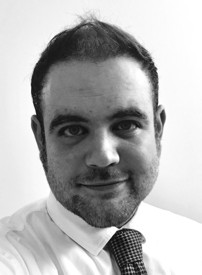Expert Help for OCD
Take Your Life Back from OCD
Offering expert treatment for all types of OCD, including unwanted obsessional thoughts. Our OCD treatment program is typically 10 weeks. We offer twice-weekly sessions, groups, and intensive programs. Intensive program can be in person or online. Low cost options available. Contact us...
Behavioral Wellness Clinic
392 Merrow Rd, Suite E,
Tolland, CT 06084
Office: (860) 830-7838
New England
OCD Institute
James DiLoreto, Ph.D.
Director of OCD and Related Disorders

Dr. James DiLoreto is the Director of OCD and Related Disorders and psychology fellow at the New England OCD Institute. He is an expert in treating all forms of obsessive-compulsive disorder (OCD), including OC Spectrum disorders such as hoarding, tic disorder/Tourette's Syndrome, body dysmorphic disorder, and trichotillomania (hair pulling). Dr. DiLoreto specializes in adults and adolescents 16 and older. He received his Psy.D. from the University of Hartford completing his predoctoral internship studies in the Cognitive-Behavioral Therapy (CBT) track at the Institute of Living in Hartford, Connecticut. He then completed a postdoctoral fellowship at Harvard McLean Hospital’s Obsessive-Compulsive Disorder Institute in Massachusetts, the premier inpatient OCD program. At Mclean Hospital, Dr. DiLoreto worked as a behavioral therapist in a residential program for individuals with severe OCD. Prior to receiving his doctorate in clinical psychology, he completed a Master’s degree in Community Psychology from the University of New Haven.
Dr. DiLoreto has expertise in providing empirically supported treatments for obsessive-compulsive disorder (OCD) as well as anxiety disorders such as social anxiety disorder, panic disorder, and health anxiety. He has received extensive training in cognitive behavioral therapy including Exposure and Response Prevention (ERP), an intervention targeting obsessive thoughts and compulsions. Dr. DiLoreto also uses acceptance and commitment therapy (ACT), a behavioral therapy which includes mindfulness, acceptance, and committed action. He possesses expertise on Hoarding Disorder and has given numerous talks to mental health professionals in CT about the nature of hoarding and its treatment.
Dr. DiLoreto works closely with clinic director Dr. Monnica Williams and Dr. Nicholas Flower in his work with people who have OCD and other anxiety-related conditions. He is passionate about providing empirically supported treatments in a compassionate manner. He takes an individualized approach to those he is working with, taking into account diagnosis, cultural identity, and the presence of interpersonal and social stressors.

Selected Publications
Worden, B.L., DiLoreto, J.M., Tolin, D.F. (2014). Insight and motivation in hoarding disorder. In Frost, R.O. & Steketee, G. (Eds.), The Oxford handbook of hoarding and acquiring. New York: Oxford University Press.
Conference Presentations
DiLoreto, J.M., Worden, B.W., Tolin, D.F., Frost, R., & Steketee, G. (2013, November). A Preliminary Investigation of Insight and Motivation in Individuals with Hoarding Disorder. Poster presented at the annual meeting of the Association for Behavioral and Cognitive Therapies, Nashville, TN.
Necrason, E. S., DiLoreto, J.M., Worden, B.L., & Tolin, D.F. (2012, November). Utility of the Outcome Questionnaire-45.2 for assessing treatment outcomes for OCD. Poster presented at the annual meeting of the Association for Behavioral and Cognitive Therapies, National Harbor, MD.

